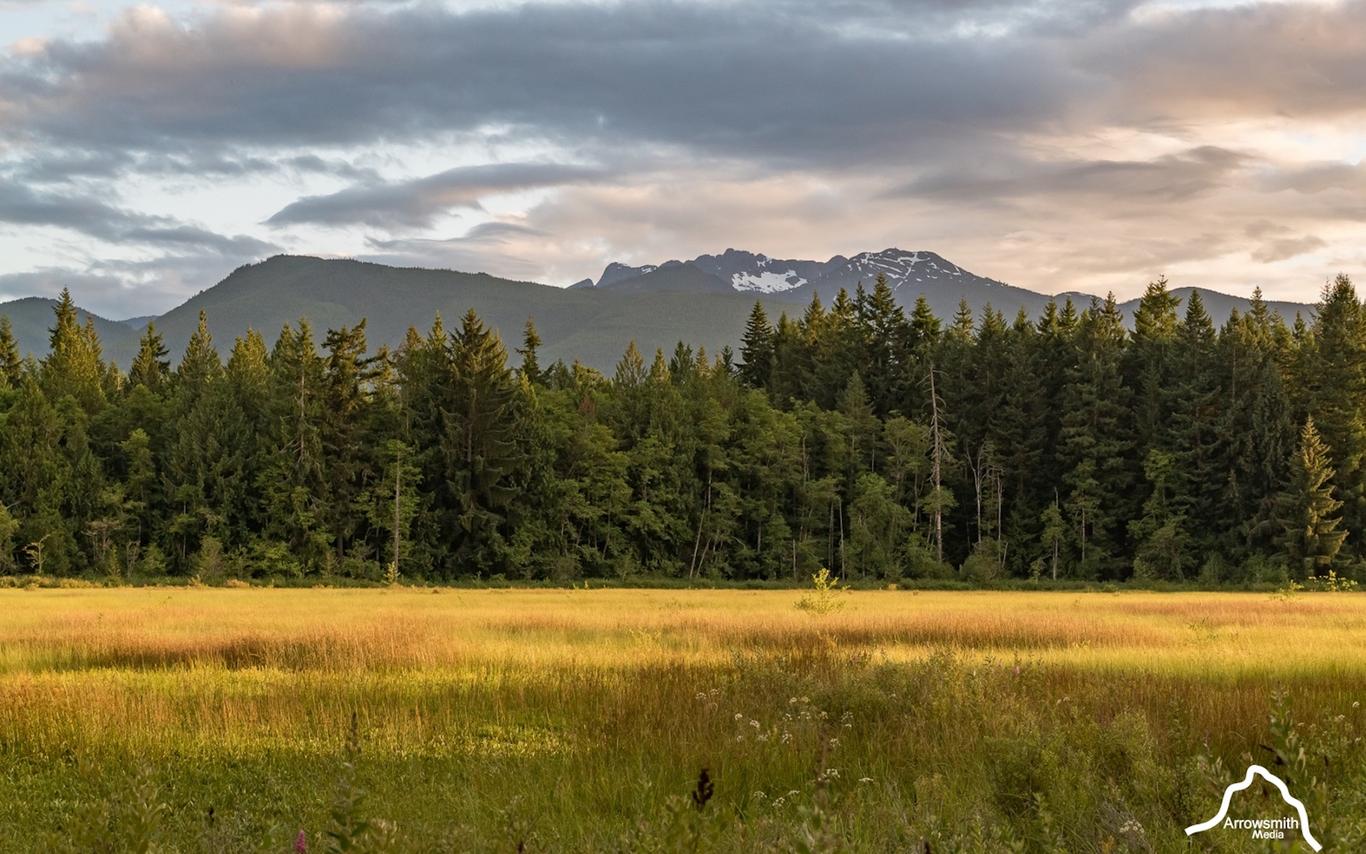Initiated in the fall of 2024, the MABR Climate Change Realities project aims to establish a local understanding of climate change experiences, perspectives, and impacts within the Mount Arrowsmith Biosphere Region (MABR) (ranging from Nanoose Bay to Qualicum Bay), for the purpose of increasing local climate change literacy and opportunities for collaboration in implementing climate change resiliency and adaptation-focused action within the MABR. Under the main objective, there are three sub-objectives: 1) Understand the climate change realities of the MABR; 2) Enhance place-based climate change knowledge in the MABR; and 3) Develop a place-based climate change database to foster innovative adaptation and resiliency strategies for the MABR.
The project will explore the climate change experiences, perspectives, and impacts in the MABR by engaging with local individuals, groups, organizations, and knowledge holders. Engagement will occur through forums hosted with regional stakeholders and knowledge holders, interviews and workshops with community members, participant observation at regional events and activities, and comment boxes hosted at ts’xwelikwshenawtxw (the MABR's Public Education Centre) and engagement booths. These engagement activities will focus on collecting local stories and experiences with climate change and its impacts in the MABR.
This project will contribute to understanding complex questions associated with climate change realities, such as how societies and people are impacted and how they will adapt and take action. This increased understanding will provide guidance on how to better support and drive local action.
Interested in Participating in the Research?
We are seeking individuals living in the MABR (ranging from Nanoose Bay to Qualicum Bay) to participate in our interviews and workshops.
Note: Participants do not need scientific knowledge of climate change or its impacts. The focus will be on opinions, perceptions, and experiences. All opinions and levels of knowledge are welcome!
Interviews
Through interviews, we aim to capture the lived experiences and perceptions of climate change in the MABR. The interview will be semi-structured, guided by some draft questions, but will be flexible to new questions and topics that may arise. The interview will be approximately 60-90 minutes in duration.
Workshops
Through a series of workshops, we aim to capture the lived experiences and perceptions of climate change in the MABR. The workshop format has been found to be a space that provides the opportunity for participants to share similar or different experiences, which prompt ideas or thoughts that may not have been considered or remembered. The workshops will be semi-structured, guided by some a theme and prompting questions, but will be flexible to new questions and topics that may arise. The interview will be approximately 90 minutes in duration and capped at 12 participants to ensure meaningful dialogue.
(Past) Workshop 1: Your Climate Story
The first workshop was hosted on February 15 where participants shared their personal experiences and observations of climate change in the MABR. It was an opportunity for participants to connect with others and hear how climate change is impacting their lives in different ways.
(Past) Workshop 2: Climate Storytelling
On Tuesday, May 20, MABRRI co-hosted a free climate storytelling workshop led by communications strategist Chloë Fraser. The session brought together local conservation stewards, community organizers, and climate advocates to explore how to communicate environmental issues with greater power and clarity. Participants learned how to effectively communicate their climate stories to mobilize supporters and engage decision-makers. The workshop focused on identifying target audiences, framing messages effectively, and crafting compelling personal climate narratives. Attendees engaged in interactive activities designed to strengthen their storytelling skills and amplify the impact of their work. The event also provided space for reflection on personal motivations in a supportive, small-group setting.
Upcoming: Pop-up Climate Change Café
August 2025
Join us, in collaboration with VIU's Awareness of Climate Change Education and Research (ACER), for a Pop-up Climate Change Café. The event will provide attendees to learn about climate change and its local impacts in the Oceanside Region.
An additional workshops may be held in June 2025. Please check back for more details, or contact the Project Coordinator, listed below, if you would like to receive details once they are confirmed.
Note: Participants must be 19 years of age or older and must live in the boundaries of the MABR.
More details can be found on our consent forms (will be uploaded shortly).
Contact Information
If you have any questions or would like to participate in the study, please contact our team:
Project Coordinator, Courtney Vaugeois Mount Arrowsmith Biosphere Region Research Institute Vancouver Island University | Principal Investigator, Dr. Pam Shaw Mount Arrowsmith Biosphere Region Research Institute Vancouver Island University |
Funders
This project is funded within the framework of the UNESCO and abrdn Charitable Foundation (aCF) partnership, “Promoting sustainable development through UNESCO’s programmes and sites”.
